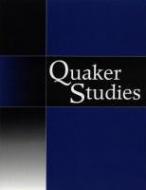
Abstract
This article examines the impact of an increasingly secularised demand for adult education in the first half of the twentieth century on two movements with which Quakers were closely associated: the adult schools and the educational settlements. It argues that the educational settlements, originally established to extend and enhance the work of the adult schools, were better able to accommodate to a secularised climate, and this ensured their survival. Neither movement flourished in the same way as the secular Workers' Educational Association and adult education provided by local education authorities, and this reflected the weakness of religious adult education in a climate of secularised demand among adult students.
Recommended Citation
Freeman, Mark
(2007)
"The Magic Lantern and the Cinema: Adult Schools, Educational Settlements and Secularisation in Britain, c. 1900-1950,"
Quaker Studies: Vol. 11:
Iss.
2, Article 5.
Available at:
https://digitalcommons.georgefox.edu/quakerstudies/vol11/iss2/5
